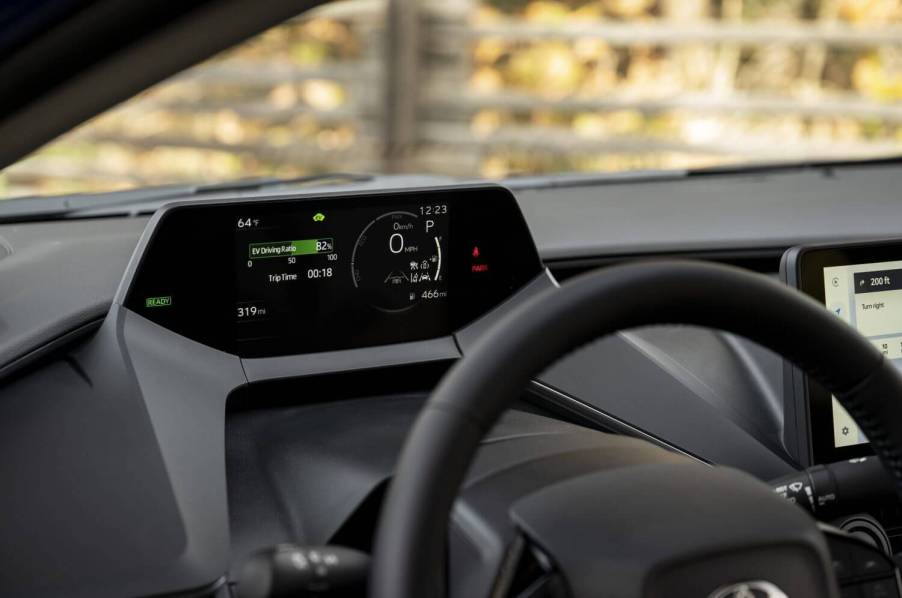
Hybrids Are Now More Reliable Than Regular Cars
For decades, an increasing number of drivers have been choosing hybrid vehicles to save fuel and reduce emissions. But many car owners still hesitate to go hybrid. One reason is the added complexity of a hybrid vehicle with both an internal combustion engine and electric drivetrain. Then a recent study confirmed that this latest generation of hybrid vehicles is more reliable than traditional cars.
Are hybrid cars reliable in the long run?
According to a recent study, hybrid cars are actually more reliable than traditional cars. While they have both internal combustion engines and electric drivetrains, all these components are lasting as long–or longer–than internal combustion cars.

Consumer Reports is a nonprofit that collects data from vehicle owners to predict the reliability of new models. In CR’s yearly Auto Reliability Report hybrids trounced every other vehicle segment. Hybrid cars ranked first for predicted reliability. Hybrid SUVs, a slightly newer segment, ranked third. Plug-in hybrid electric vehicles (PHEV) are even newer to mass production and lagging farther behind.
Hybrid vehicles are not without their unique problems. First of all, they cost more than traditional vehicles because they are more expensive to build. Secondly, they require a high voltage “traction battery” to store the energy their electric motor captures through regenerative braking. This battery wears out over time and the hybrid vehicle becomes less efficient. The bad news is that this battery can cost thousands to replace. The good news is that the traction batteries in many modern hybrids can last 100,000 or even 150,000 miles.
Do hybrid engines last as long?
A gasoline-hybrid vehicle has both a traditional internal combustion engine and at least one electric motor/generator unit. The electric motors often outlast the rest of the vehicle. As a bonus, their helping with acceleration can extend the lifespan of the internal combustion engine.
Hybrid engines have the potential to last a very long time. Let’s start with the electric motor/generator unit. Because an electric motor has so few moving parts–compared to an internal combustion engine–a hybrid’s electric motor/generator can often last longer than the rest of the vehicle.
When you hit the accelerator pedal in a stationary hybrid vehicle, its electric motor gets it rolling. This makes sense because an electric motor makes its maximum torque from zero RPM. This also gives the internal combustion engine time to start up and reach optimum rpm before it takes over at higher speeds. This saves wear and tear on the regular internal combustion engine.
Are hybrids worth getting?
Hybrids save some money at the pump, and are more reliable than regular cars. But they also can cost quite a bit more. Whether a hybrid is worth investing in might come down to you and the kind of driving you do most often.

A hybrid excels at stop-go driving. Some models, such as the Ford Maverick, actually offer better fuel efficiency in city driving than up on the highway. On TFL truck’s YouTube, a hybrid Ford F-150 owner admitted that if your commute is highway driving, the expensive PowerBoost upgrade will likely never pay for itself. But if most of your driving is in the city than you could see the upgrade pay for itself if you own the truck for long enough.
The F-150 hybrid is an interesting example because it offers up to 7.2-kilowatts of onboard power and a 5.3 second 0-60. So depending on your vehicle budget, a hybrid may be worth it even if it won’t pay for itself with lower repair costs or lower fuel costs.
Read about the cost of replacing the battery in a hybrid or PHEV or learn more about hybrid cars in the video below:






